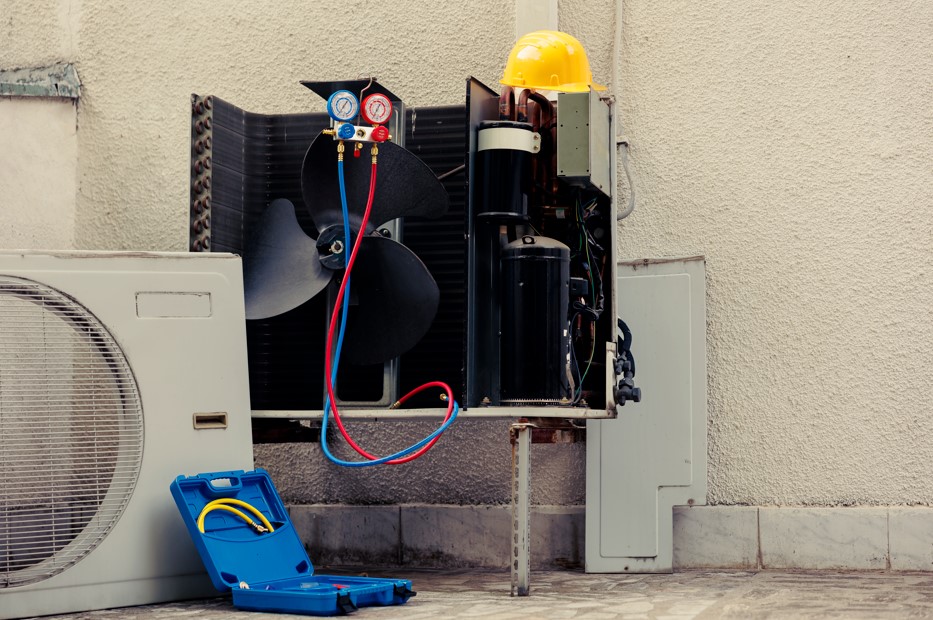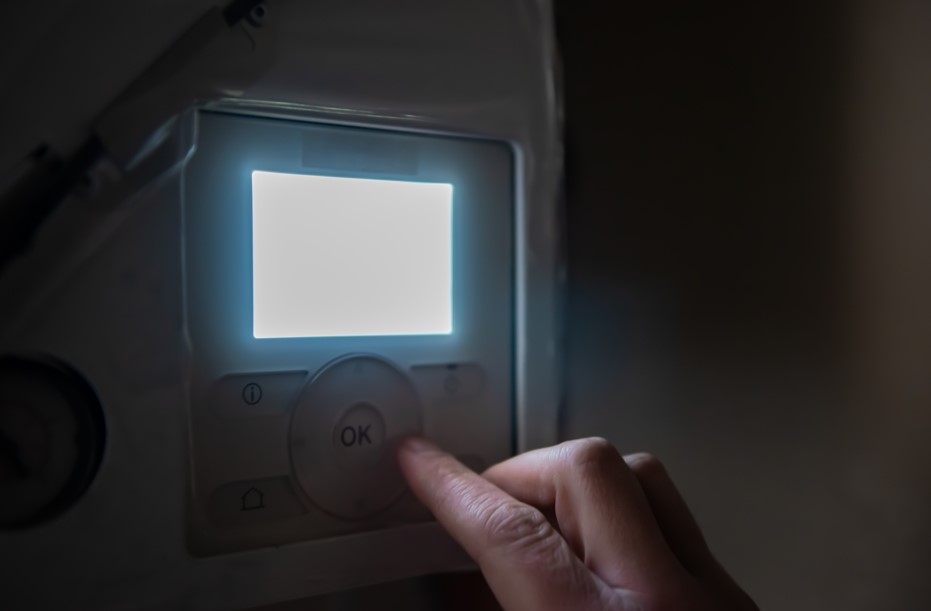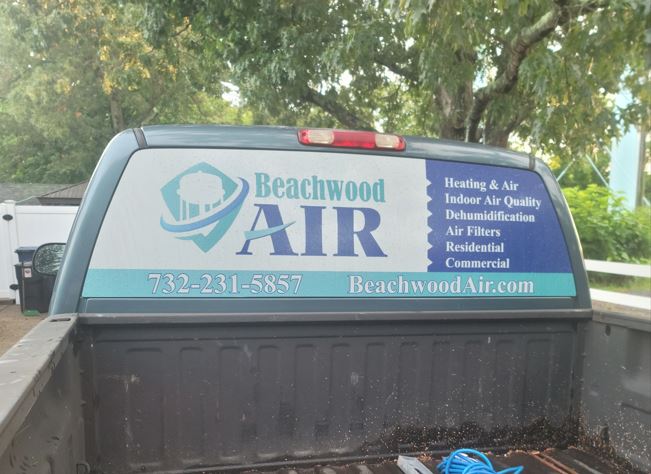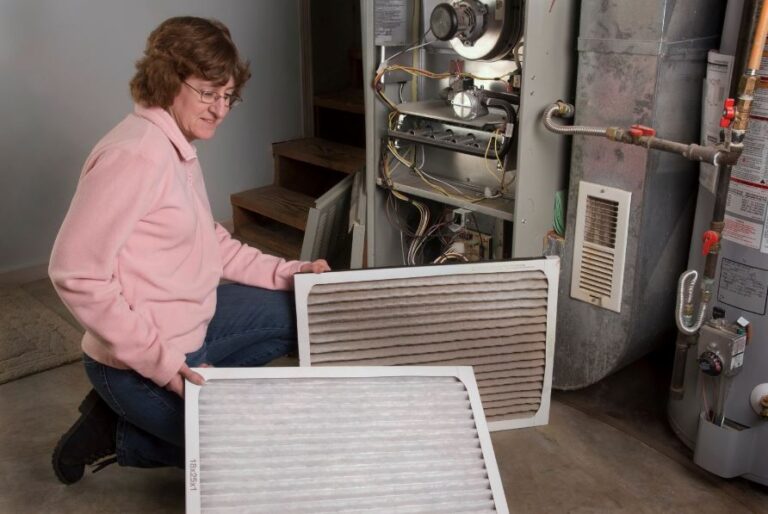
Frozen evaporator coils are a frequent issue that many New Jersey homeowners and businesses encounter with their air conditioners.
This problem can drastically reduce the efficiency of your AC unit, making your living or working environment uncomfortable, especially during those hot NJ summers.
What causes an evaporator coil to freeze?
Restricted airflow due to a clogged air filter, low refrigerant levels, or even problems with the thermostat can lead to a frozen evaporator coil. When this happens it can your air conditioner struggle to maintain a cool temperature and also result in higher energy bills and potential damage to the unit itself.
At Beachwood Air, based in Ocean County, New Jersey, we specialize in diagnosing and repairing issues related to heating and cooling systems, including air conditioning repairs due to frozen evaporator coils. We proudly service the whole state of New Jersey and our team is here to ensure your AC unit runs smoothly year-round.
Let’s take a closer look at why these coils freeze and what you can do to keep your air conditioner in the best condition.
What Are Evaporator Coils?
Evaporator coils are a necessary piece of your air conditioning unit. These coils, usually made of copper, steel, or aluminum, are located inside the indoor unit of your AC system. They play a vital role in the cooling process by absorbing heat from the air inside your home.
Here’s how it works: The evaporator coils are filled with a refrigerant that absorbs heat as it passes over the coils. This refrigerant then moves to the outdoor unit, where it releases the absorbed heat. The blower fan then circulates the now-cooled air back into your living space, maintaining a comfortable temperature.
Evaporator coils are an important part of your air conditioner. If these coils freeze your air conditioning unit can’t effectively absorb heat, leading to warmer indoor temperatures and potential damage to the system. Factors like a clogged air filter or a malfunctioning blower fan can restrict airflow, making it more likely for the coils to freeze.
You need these coils for the efficient operation of your air conditioning unit. Keeping them clean and ensuring that components like the blower fan and air filter are in good working order is key to maintaining cool air in your home.
Why Do Evaporator Coils Freeze?
Understanding why evaporator coils freeze can help you take preventative measures to keep your system running smoothly. Here are some common reasons:

Restricted Airflow
One of the primary causes of evaporator coil freezing is restricted airflow. This usually happens when you have a dirty air filter or dirty evaporator coils. When the airflow is blocked, the coils can’t absorb enough heat, causing them to get too cold and eventually freeze. This not only reduces the efficiency of your AC unit but can also lead to more serious damage if not addressed promptly.
Low Refrigerant Levels
Refrigerant is a big part of the cooling process. It works by absorbing heat from your indoor air and releasing it outside. When the refrigerant levels are low, the pressure within the system drops. This causes the evaporator coils to become too cold, leading to freezing. If you notice your AC isn’t producing cool air as effectively as it used to, low refrigerant levels might be the culprit.
Thermostat Issues
Sometimes, the problem lies with the thermostat. Incorrect thermostat settings can cause the AC unit to run longer than necessary, leading to evaporator coil freezing. If your thermostat is malfunctioning, you might notice that the temperature in your home doesn’t match the thermostat setting, or the AC runs constantly without cycling off.
Ductwork Problems
Issues with your ductwork, such as leaks or blockages, can also affect airflow and contribute to coil freezing. When air leaks out of the ducts or gets blocked, less air passes over the evaporator coils. This reduced airflow can cause the temperature of the coils to drop, resulting in freezing. Regular inspection and maintenance of your ductwork can help prevent these issues.
Signs of Frozen Evaporator Coils
When an evaporator coil freezes, it can lead to a host of problems for your air conditioning system. Recognizing the signs early can help you address the issue before it causes more significant damage. Here are some common indicators that your evaporator coil might be frozen:
Visible Ice on the Coils
One of the most obvious signs is the presence of ice on the coils themselves. If you open the air handler and see ice or frost, it’s a clear indication that the evaporator coil has frozen. This can happen due to restricted airflow, often caused by a clogged air filter, which prevents the coils from absorbing enough heat.

Warm Air Blowing from the Vents
If your AC is running but you’re only feeling warm air coming from the vents, it could be a sign of a frozen evaporator coil. When the coil freezes, it can’t effectively cool the air, resulting in a lack of cool air circulating through your home.
Unusual Noises from the AC Unit
A frozen coil can cause your AC unit to make strange noises, such as banging, hissing, or bubbling sounds. These noises can result from the strain on the system as it tries to function with a frozen coil or from refrigerant issues that caused the coil to freeze in the first place.
Increased Energy Bills
If you notice a sudden spike in your energy bills, it might be due to your AC unit working overtime to compensate for a frozen evaporator coil. The system has to work harder to try and maintain the desired temperature, using more energy in the process.
By keeping an eye out for these signs, you can catch a frozen evaporator coil early and take steps to resolve the issue, ensuring your air conditioning system runs efficiently and effectively.
Ensuring Optimal Performance of Your AC Unit
Understanding the role of evaporator coils and the potential issues that can arise, such as freezing, is crucial for maintaining the efficiency and effectiveness of your air conditioning system. Regular air conditioning maintenance, including changing air filters and inspecting for airflow restrictions or refrigerant levels, can help in preventing problems before they escalate. Watch out for signs of frozen coils and address them promptly, you can ensure that your air conditioning unit continues to provide a comfortable environment in your home. Investing time in these preventative measures ultimately leads to a more reliable and energy-efficient cooling system.



